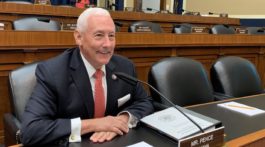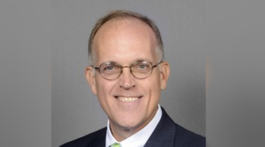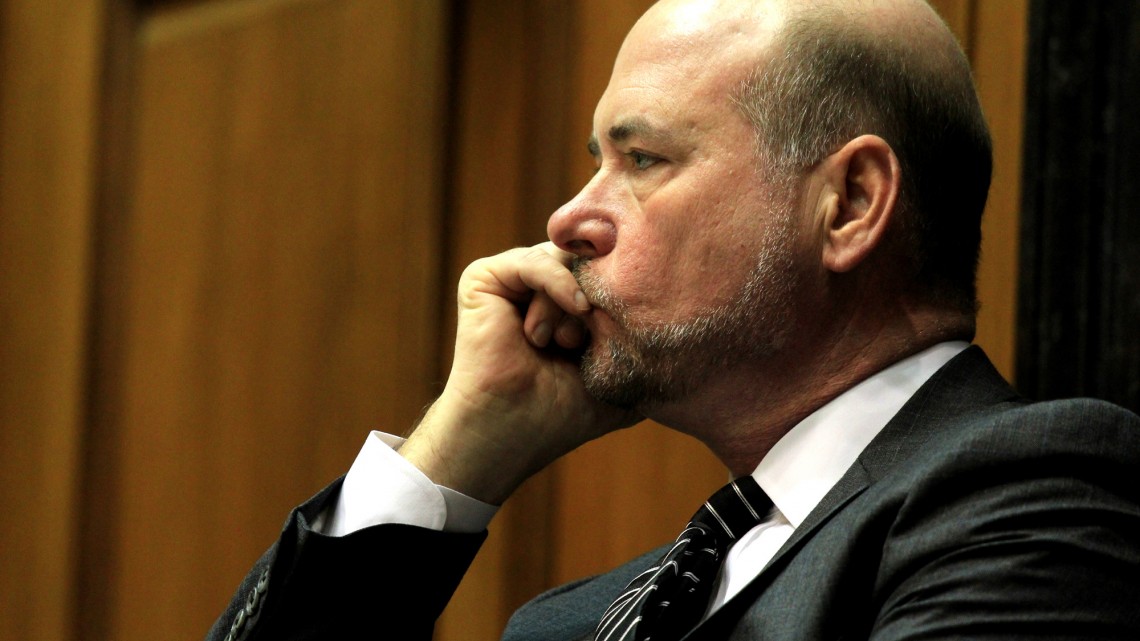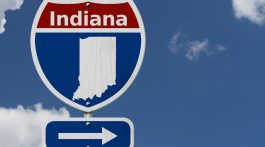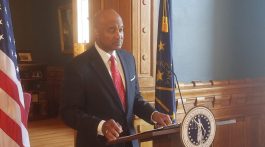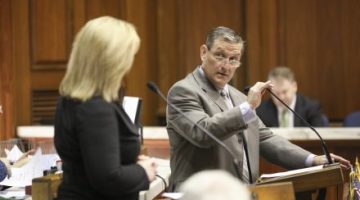By Brian Bosma
As the Speaker of the Indiana House, I announced some lofty goals for this year’s short legislative session on Organization Day last November. Tackling road and bridge funding issues, protecting and promoting Indiana’s teachers and students, curbing our state’s illegal drug epidemic and replacing the ISTEP test all topped the list. And I made one more pledge – in this season of endless political sniping, the Indiana House would conduct itself in a civil, inclusive and bipartisan fashion. I am pleased to state that Hoosiers are winners on virtually each of these counts.
“Crossroads of America” isn’t just a slogan in Indiana. Our economy depends on goods travelling on our roads and bridges. As the leading manufacturing state in the nation, 80 percent of our state’s manufactured products travel by road to all points of our nation. Additionally, our roads serve more than 80 percent of Hoosier communities. Sound infrastructure investments aren’t an “expense;” they are a key economic growth investment.
While House Republicans proposed a comprehensive, responsible and sustainable road funding plan this year, legislators ultimately struck a compromise to address state road needs over the next two years, while approving part of our proposed long-term local funding tools. The final plan, authored by State Rep. Ed Soliday of Valparaiso, gives local governments, who are responsible for the vast majority of our state’s infrastructure, some additional options to address their needs and begins the process of redirecting all sales tax on gasoline to dedicated road funding. Hoosiers believe what they pay at the pump funds roads, and we are committed to reaching that expectation. Hoosier taxpayers deserve it.
House Enrolled Act 1001 creates a good starting point for future discussions. We direct $186 million upfront to a newly created local road and bridge matching grant account. We will also redirect 1.5 cents of the 7 cents of sales tax on gasoline to the matching account as a source of ongoing local funding and made permanent an additional penny of that sales tax dedicated to the Motor Vehicle Highway fund. In addition, Senate Enrolled Act 67 returns to local units $505 million in local income tax reserves currently held by the state with $330 million now dedicated to roads.
It’s a good start, but experts tell us we need an average of about $800 million additional per year for the next 20 years if we intend to keep those “Crossroads” signs up. Much remains to be done.
On the education front, we acted quickly with the Senate, Gov. Mike Pence and Superintendent of Public Instruction Glenda Ritz to protect schools and teachers from unfair penalties as the state transitions to new, more rigorous standards. We also acted to repeal ISTEP and are working to assemble a team of experts to assist policymakers in identifying the best replacement. We can no longer tolerate long days of testing students without getting results in the hands of parents and teachers for more than half a year. Our students, teachers and schools deserve better.
We also established the “Next Generation Hoosier Educators Scholarship” designed to attract Indiana’s best and brightest high school graduates to the teaching profession. As the author of HEA 1002, I firmly believe the single most important indicator of student success is a great teacher in the classroom. This scholarship will provide top students who commit to teaching in our schools for at least five years, with up to $7,500 per year to cover tuition.
As the top meth-producing state in the nation, Indiana needed to take action this session to restrict the ingredients used to manufacture methamphetamine. With over 1,500 labs discovered each of the last three years, and hundreds of children contaminated in meth-laced homes, dealing with this scourge is more than a law enforcement matter; it’s a child protection issue as well.
Rep. Ben Smaltz of Auburn worked closely with our Senate colleagues and other stakeholders to enact legislation allowing law abiding Hoosiers to continue to access medications containing Pseudoephedrine (PSE), while making it much tougher on criminals. Under SEA 80, if a purchaser has an existing relationship with a pharmacy they can obtain PSE as they do today. If a pharmacist doesn’t know them and cannot confirm their need, they may purchase an extraction-resistant product or a smaller package of PSE. If the purchaser refuses the alternative options, a prescription is required.
We also toughened penalties for the worst drug traffickers, assuring those dealing meth or heroin with a prior drug felony conviction would serve at least 10 years behind bars, and provided grants to counties to implement evidence-based mental health and addiction forensic treatment services.
On our last goal, Hoosiers should be pleased that the vast majority of the matters addressed by your General Assembly this session were supported on a bipartisan basis, with the great majority of bills receiving nearly unanimous support in both chambers. Legislators worked hard to find common ground, and on most issues, were successful.
I’m a firm believer in General Norman Schwarzkopf’s admonition: “Give yourself a clear agenda. Write down the most important things to get done, and no matter what else happens, get those things done.” That’s exactly what the House Republican team did this session, and with the help of our House and Senate colleagues and Gov. Mike Pence, Indiana is better for it.
Brian Bosma is the Republican Speaker of the House.





